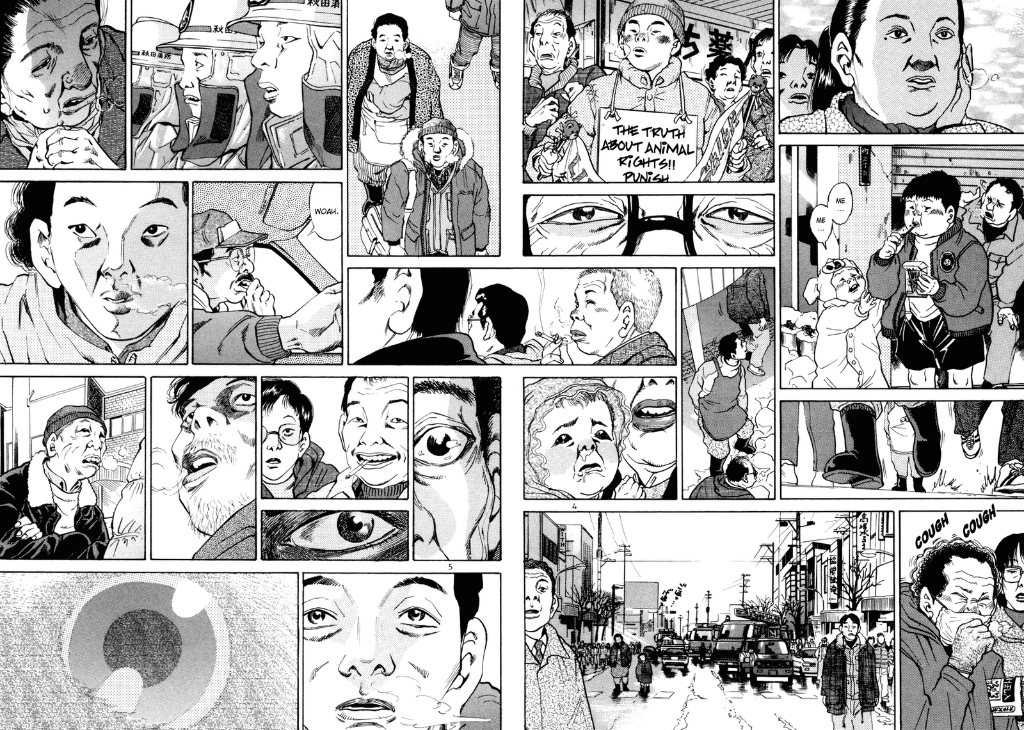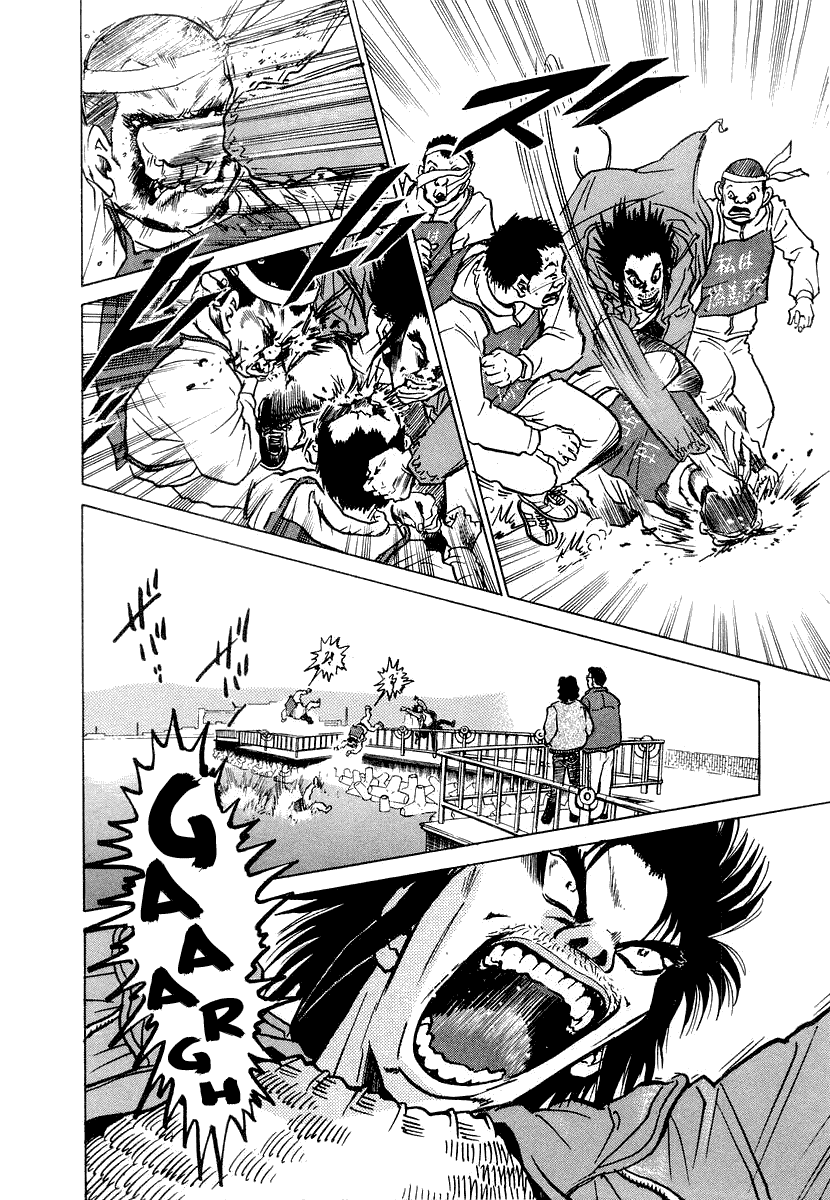The World is Mine is a seinen manga which I believe happens to be the best piece of fiction ever made. It follows the journey of the two man group ToshiMon as their moral standings on the subjects of love and murder change throughout the plot. The plot focuses on these individuals in the purview of them also conducting a massive terrorist attack on Japan. Both characters change drastically from the initial chapters, almost seeming to trade places with each other. The character Mon starts out as an almost perfect representation as Hobbes' idea of the primitive man, a selfish and uncaring man who — in Hobbes' opinion — must be controlled by the state, he consistently performs horrific acts on others all in accordance with his motif-like urge to "affirm" himself. Tosh , his reluctant crossdresser sidekick, who is in love with Mon's ambition (and possibly him), creates bombs to help Mon terrorize Japan, he soon finds himself in over his own head, lacking the ambition that Mon has in such abundance.
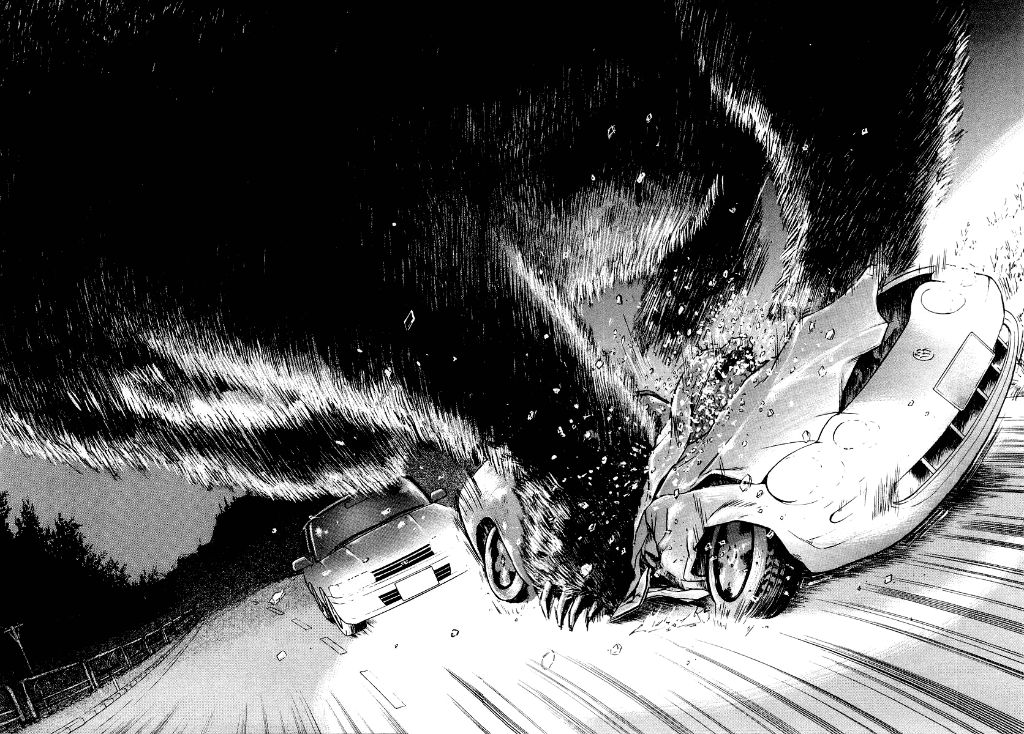
In the beginning of TWIM Mon is first presented in the middle of a fast paced scene in which he’s fucking a random girl in a car filled with pipe bombs going twice the speed limit, this setting immediately clues the reader into what type of person Mon is; utterly unhinged, in other words he is the perfect representation of the Hobbesian primitive man. Mon exists as an empty husk desiring subsistence and to “affirm himself” or through a more Hegelian lens; to be recognized. I choose to view Mon from a Hegelian lens as his entire character development is premised upon his desires and how they interact with the rest of the world. In Mons first phase of development he is like an animal, existing only by “negating” (to negate is to use an object for it’s utility and in doing so transform it, ex: eating food), most of Mon’s negations are killing others as he feels they are not worthy of moral consideration.
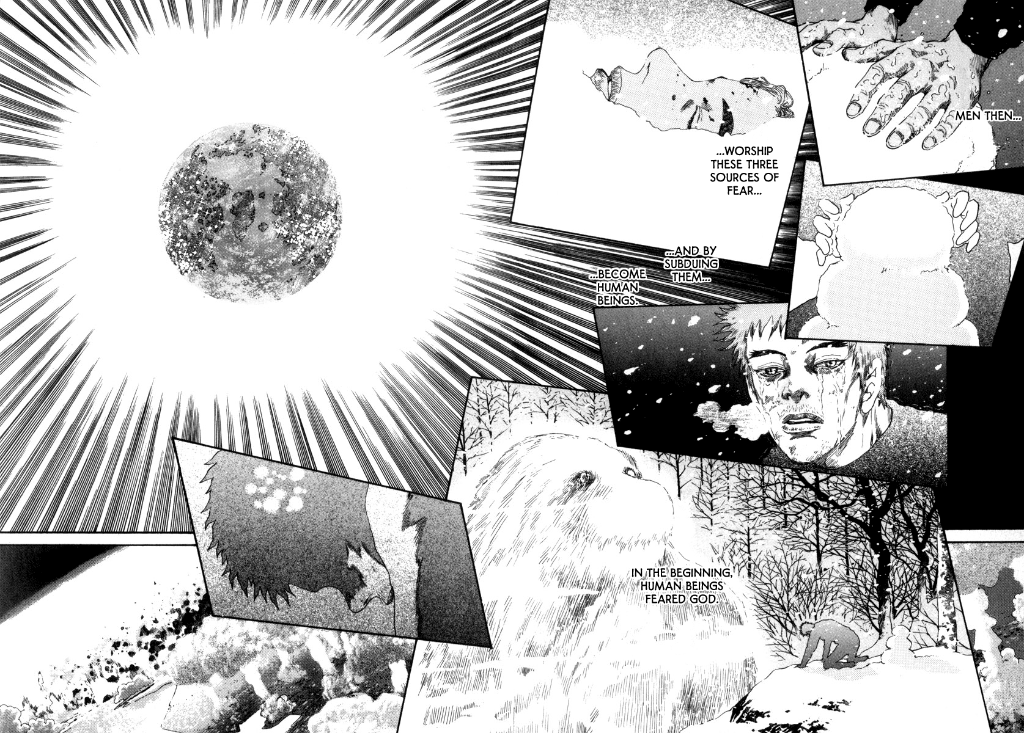
Mon lives and affirms himself through negation and collects those “below” him to aid him in the fulfillment of his desires. Mon thus first fits the bill of the "master" in Hegel’s master slave dialectic; the reason I specify “first” in this scenario is due to fact that Mon’s relation to the dialectic changes vastly throughout the story, I will present these changes as phases of development thus phase one is Mon’s phase of what I will call “Primitive Mastery”. As stated previously, Mon only lives to fulfill base desires as an animal would, due to this he possesses a self-confirming sense of domination over the world around him, Mon has never met an equal who necessarily possesses the ability to recognize him as a self-consciousness.
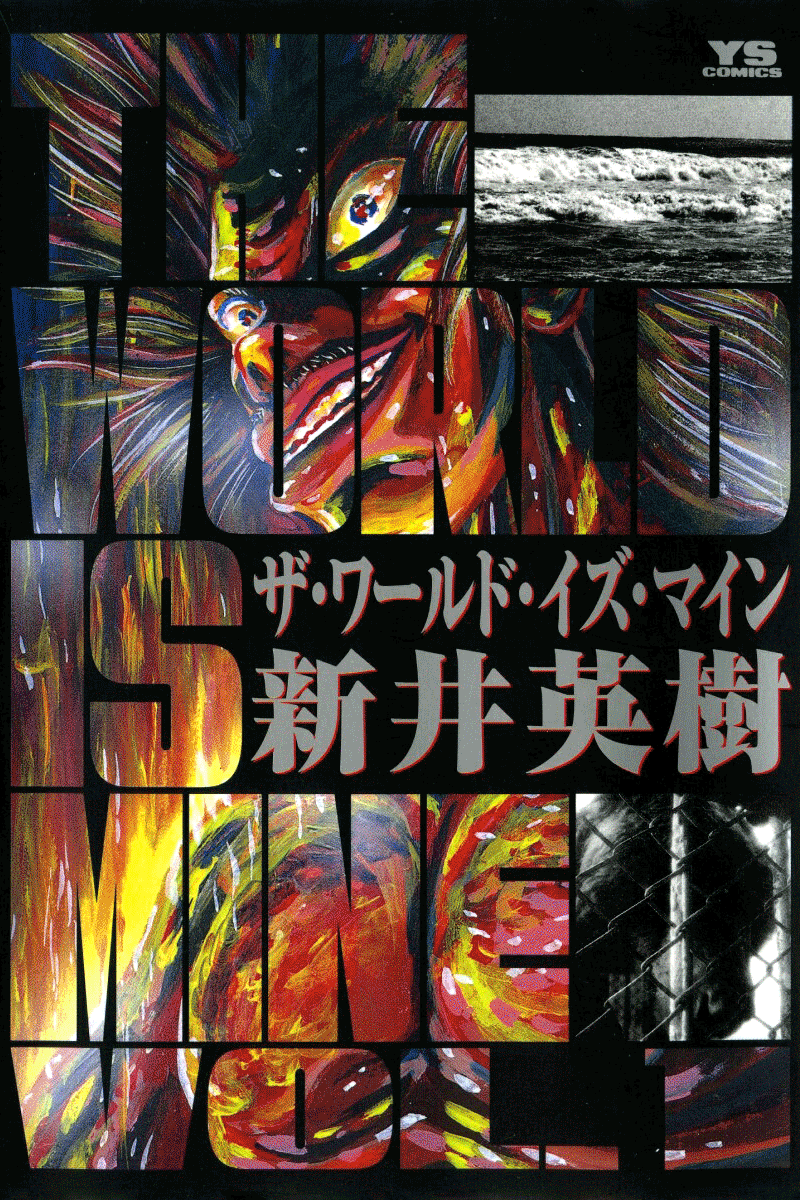
Throughout their story a kaiju-esque monster called the Higumadon roams Japan killing all who it happens to run past; it plays the most central role in Mon's actions and morality throughout the story. I first found out about TWIM from Lirish who is needlessly bullied for his pedantic but ultimately excellent takes on the mediums I love. I was first immediately attracted to its artstyle of almost distorted, caricature-like facial features and displays of emotion. but as i read it i began to connect the story to the views of many of my favourite philosophers, despite the story not being relatable at all its themes are so vast that it can be interpreted in a number of ways (a personal favourite of mine stating that mon represents the nietzschean idea of the ubermensch).
Mon kills because he feels dominant to the “other” and simply because he has the ability to do so, this is evidenced in his statement to Toshi, “every creature possesses the power to let others stay alive or kill them… Use it." Because Mom is always dominant in his relationships he is unable to be “recognized” by another subject(an equal) as a self-consciousness, he remains unsatisfied and therefore continues to destroy, satisfying what Hegel calls first order desires. Hegel expands on this idea of animalistic desire and directly connects it to self affirmation much as Mon does through his terrorist attacks on Japan; from which he cultivates a sense of self. Whenever Mon states "i affirm myself" the phrase is always followed with some sort of extreme violence, this can be represented in Hegelian terms with negation in which Mon takes an object outside of himself and either transforms it (in most cases killing it) or letting it live as his slave such as in the case of Toshi.
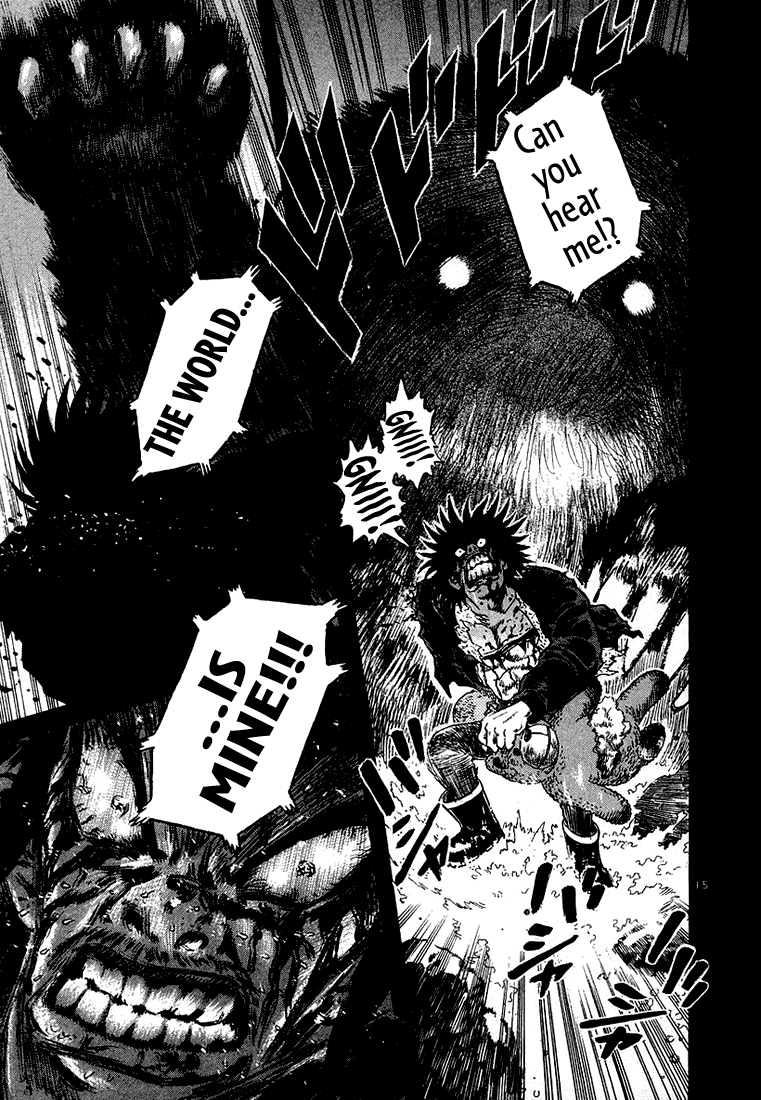
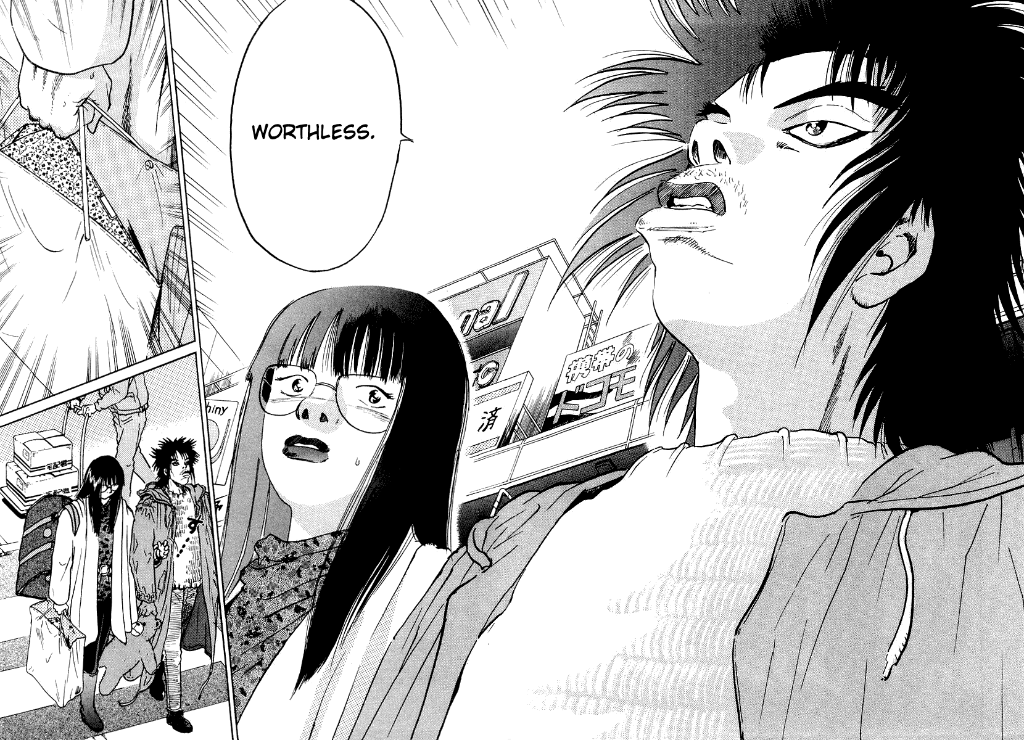
Within the traditional progression in the dialectic, the slave’s fear of the master becomes a motivating force to create and change the world around him through labor, Mon however does not create, he and Toshi reach a state of cooperation due to Mon’s more subdued state and they submerge Japan in a state of fear (almost seeming to mimic the master) in a sense “preparing” the public for Higumadon’s attack on Otome. Another part of the slave’s position under the master is the idea of “preparation” in which the slave transforms an object in order for the master to negate it, the most simple example is food preparation; the slave kills a hog and chops it into edible pieces for the master to eat or negate.
Phase two of Mon’s development begins with his first encounter with God, in this case represented with the massive bear-capybara Higumadon; After Mon’s attack on the Aomori police station he finds himself face to face with Higumadon (whether this is a delusion or actually godly intervention by Higumadon is still up to interpretation). Mon is utterly beaten and finds himself unable to kill after understanding the absolute fear/dread a man goes through before death. This parallels the scenario that Hegel presents the Dialectic through, two beings equally powerful and equally confident in their self-consciousness engage in a fight, afterwards one submits to the other and in doing so becoming the slave (Mon), only due to this submission does the other become the master (Higumadon).
This can be read like a literal interpretation of a passage in Thus Spoke Zarathustra in which a priest encounters the prophet Zarathustra after his visit to the mountains, “Zarathustra is transformed, Zarathustra has become a child, an awakened one is Zarathustra. What do you want now among the sleepers?”. Coincidentally (or most likely intended), the transformation into childlike existence is the start of both Mon and Zarathustra’s transformations to becoming Ubermensch or Overman, men unconstrained by the morality of the common people who seek to rebirth the world much like they themselves were "reborn".
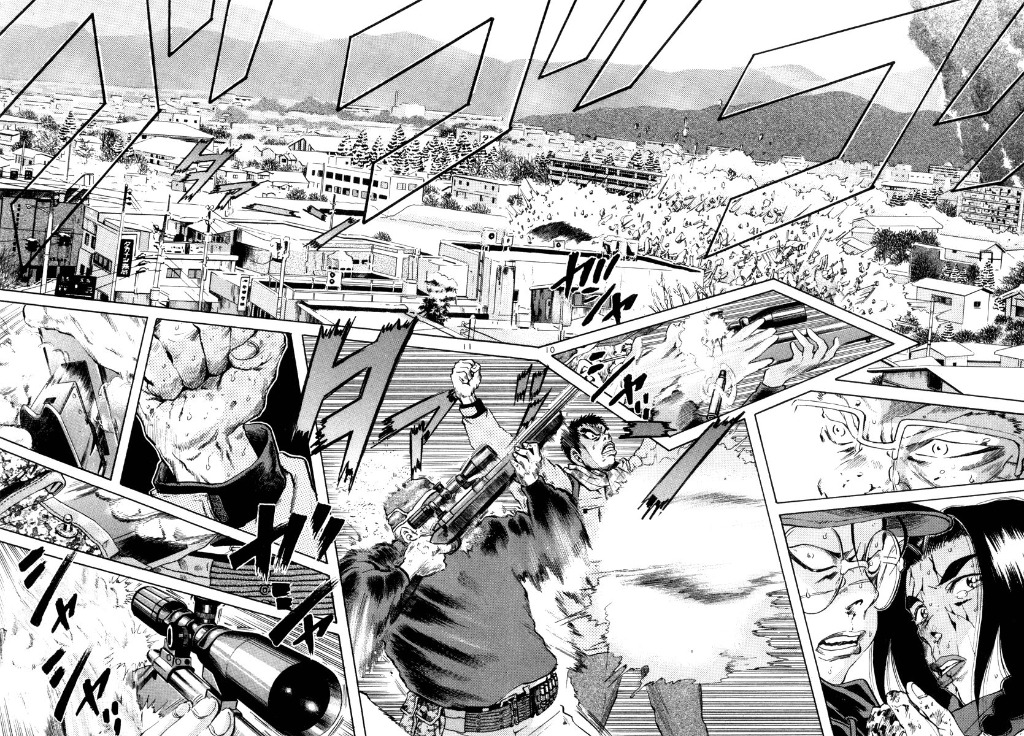
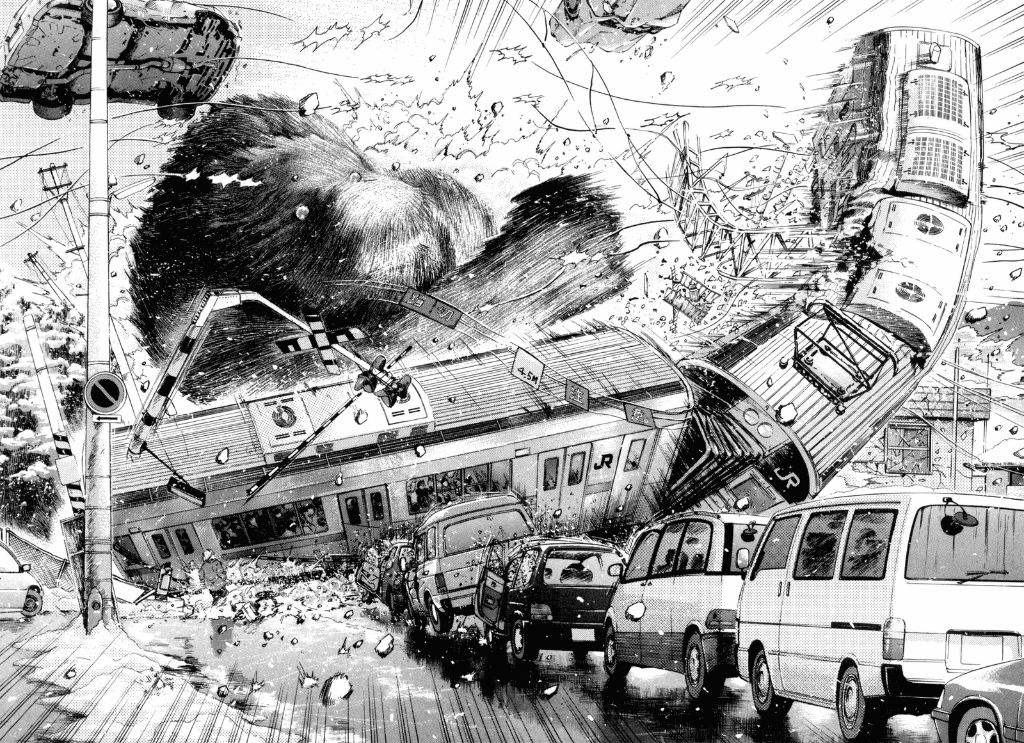
Mon and Toshi initiate an age of terrorism in Japan by feeding upon the emotions of the populace; they manipulate the prime minister into stripping nude for national television, create a crime wave of 7 times the traditional murder rate, and prompt a nationwide investigation motivated by fear (much like the slave) to find their locations. While Japan dips into this state Mon and Toshi travel to Otome to carry out their plans where they are intercepted by Maria; she becomes incredibly important to the story later on, eventually allowing Mon to transcend his reliance on others for affirmation. Mon is even more docile in Maria’s presence as she represents the motherly love that Mon was never able to experience as he grew in the contempt of his parents; due to Maria’s replacement for a mother, Mon seems to revert in age, behaving like a child.

Rebirth tends to be a great theme throughout TWIM, whether it be the rebirth of Mon as the Overman, Toshi´s rebirth into a demon, or Maria´s rebirth in the Waltz for Maria arc; each of the main subjects of the story change. Mon´s rebirth takes place on the run when he and Toshi are staying with Maria´s friend Junko, at the time, Toshi is absorbed in himself, transforming his own moral system and in a sense submitting to the idea that he is a demon. Mon within phase one was continuously trying to convince Toshi of his wicked nature, oftentimes encouraging him to blackmail the women that Mon raped and to of course build his pipe bombs. After months running from the police Toshi begins to dissociate from his former self and all his past connections, in almost retaliation against his past self he threatens the TV stations broadcasting his fathers statement to the public and to Toshi himself.
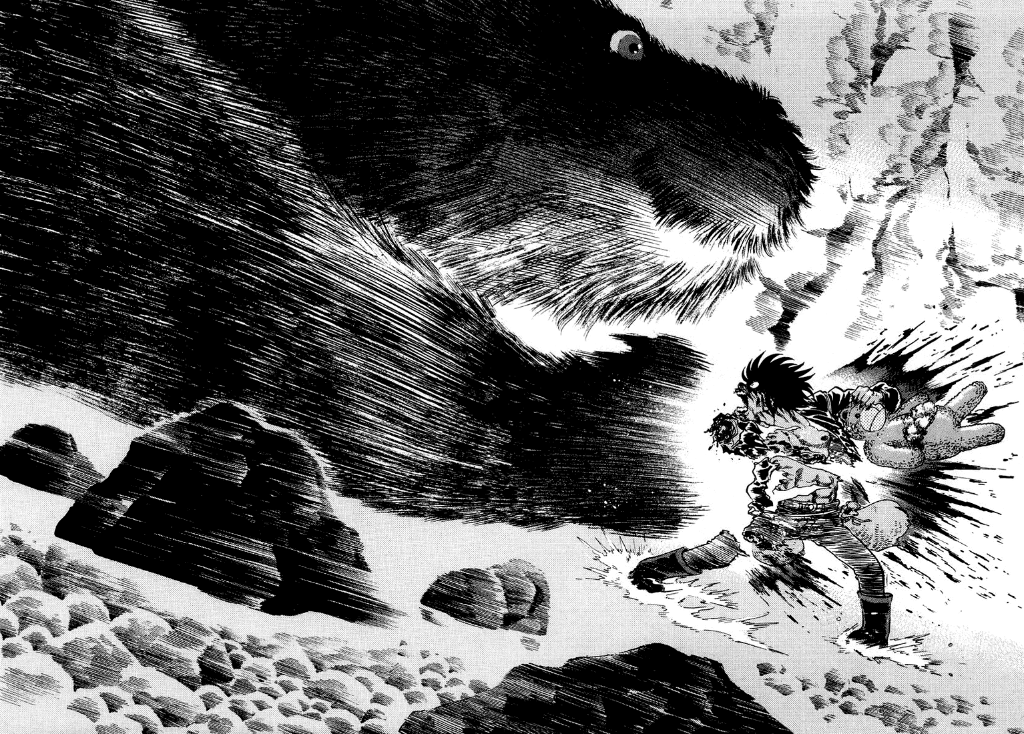
When Toshi´s outburst occurs it seems almost surprising, he rejects the recognition that he had in his previous life to become a deranged serial killer, but in the process of doing so he is recognized by the whole world. Toshi throughout the story never truly becomes a demon, his outburst against the TV shows that he is still bothered by the memories of the past and thus he remains a slave; both in fear of the world but still seeking its recognition. Toshi is a failure, a false rebirth; Mon, his master, has tricked him, he is the true rebirth, the Overman.
Maria dies. A focal point in Mon´s development as he loses the mother from which he projects upon his own emotions, distraught, he calls upon the Higumadon, a feat only possible by an equal to it, a god, or an overman. Mon by this stage has not just succeeded the dialectic but become equals with the Higumadon, a god in its own right with no superior. Mon has become an adult within three days; unlike Zarathustra in the traditional Nietzschean canon, Mon does not bring new meaning to the world in the absence of god; Mon is the harbinger of the world's destruction. Instead of bringing new meaning to life on earth he begins new life on a distant planet, springing from his corpse, in a final act of god.
This Mon is the Ubermensch, however he lacks ideology, there is no drive for anything other than satisfaction. In fact there is barely anything distinguishing stage two Mon from phase one Mon except for one thing, Mon is no longer a master, he no longer regards Toshi as a slave, for Toshi has become the slave of the world, not Mon´s. Toshi, and Mon´s inherent sense of dominance over others was the only thing tying Mon to the dialectic. In his rebirth he no longer has these ties to the world, he is experiencing it for the first time, like a child. This reality presents a problem; Mon is massacring people who he regards as equals, no longer does he view them as inferior consciousnesses, through his massacre we see that he no longer desires recognition, he desires to rebirth the world just as he did.
Mon´s rebirth into the Ubermensch (or phase 3) takes place in three stages, Fetal, Childlike, and Adult. The fetal stage occurs all within Maria´s lap, Mon recounts all of his childhood memories expressed like an explosion, a big bang within his own reality. From this vision he wakes into the childlike stage. Maria, having metaphorically become Mon´s mother, is overcome with emotions when Mon wakes; going insane, she is dragged into a massacre as Mon has lost all fear of the Higumadon and escaped the dialectic. He has projected all of his emotions upon her and becomes once again a husk, able to kill as he no longer remembers absolute fear.
